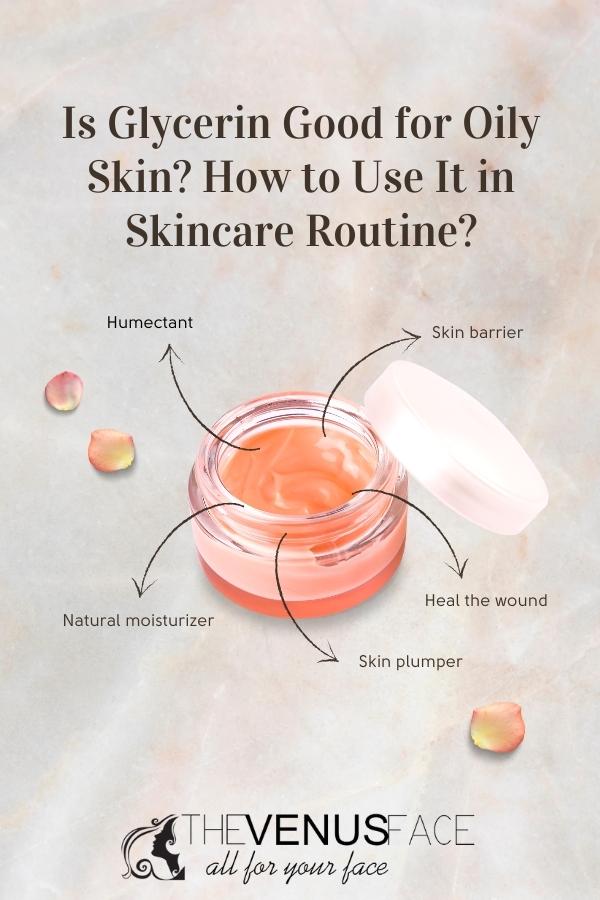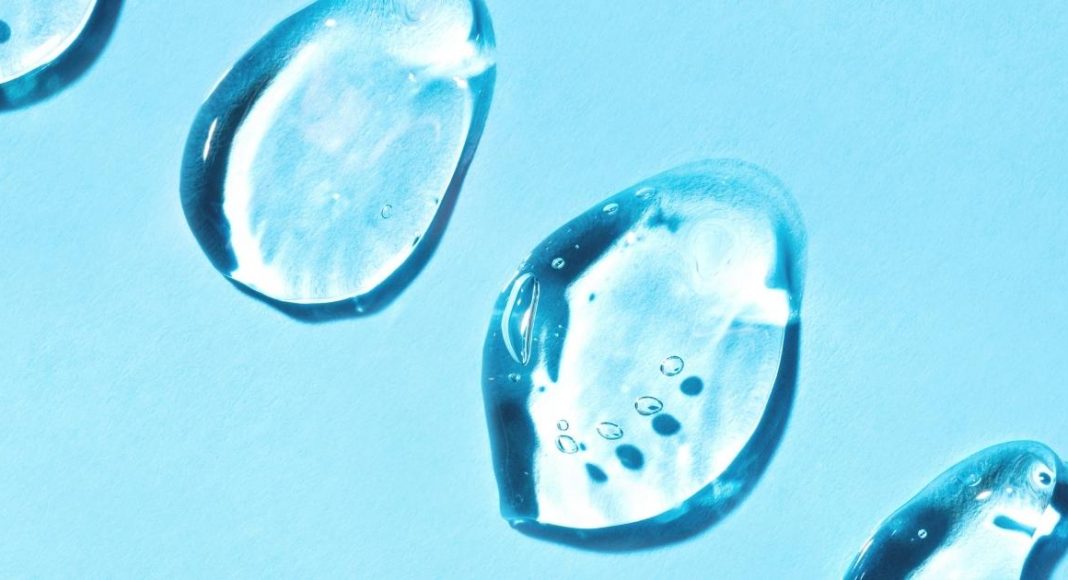Is glycerin good for oily skin? Learn about it in this article.
Glycerin is a natural chemical compound that is widely used in personal care products such as moisturizers, shampoos, and soaps. As a humectant, glycerin helps to attract moisture into the skin and prevent the drying out of the skin by locking it in. This property makes it especially useful for people with dry or sensitive skin who are prone to irritation. Additionally, glycerin acts as an emollient, helping to create a smooth and soft texture in personal care products. Because of these properties, it is common for dermatologists to recommend glycerin-based products to their patients suffering from dry or irritated skin conditions. Whether applied topically or ingested orally, glycerin can be a powerful tool for restoring the overall health of the body. However, is glycerin good for oily skin?

Does glycerin help oily skin?
Yes, it does. Glycerin helps the skin to retain moisture, which can help oily skin to feel less greasy and keep breakouts under control. Additionally, since glycerin is non-comedogenic, it will not clog pores or contribute to the formation of acne. For these reasons, glycerin can be a valuable addition to the skincare routine of people with oily skin, particularly when used in combination with other oil-reducing products such as astringents and mattifying moisturizers.
Glycerin benefits for skin
There are many benefits associated with using glycerin on the skin.
Humectant
Many people with oily skin make the mistake of thinking that they don’t need to moisturize. However, even though your skin may be producing an excess of sebum, it is still important to moisturize on a daily basis. If you don’t, your sebaceous glands will overcompensate by producing even more oil, which can lead to clogged pores and breakouts. And one of the best ways to moisturize your skin is to use a product that contains glycerin. As a humectant, glycerin helps to attract water into the skin cells and keep them hydrated. This is important because well-hydrated skin cells are able to function properly and help keep the skin barrier intact, which can prevent the formation of acne.
Act as a skin barrier
Glycerin can also help to protect the skin from environmental aggressors such as pollution and UV radiation. This is because glycerin forms a barrier on the surface of the skin that can help to trap moisture and keep out harmful toxins and irritants. Additionally, this barrier can help to prevent the evaporation of water from the skin, which can further prevent dryness and irritation. For this reason, glycerin is commonly used in products such as sunscreens and moisturizers to help protect the skin from the harmful effects of UV radiation and reduce signs of premature aging.
Heal the wound
Glycerin promotes cell proliferation and collagen production, both of which are essential for healing wounds. Additionally, glycerin has been shown to decrease inflammation and increase antioxidant activity, both of which further promote healing. Consequently, glycerin can be an effective treatment for various types of skin wounds.
Skin plumper
If you want to achieve plump, hydrated skin, glycerin should be your go-to ingredient. When applied to the skin, glycerin works by drawing water from the atmosphere and into the epidermis (the outermost layer of skin). This process not only hydrates the skin but also gives it a plump, youthful appearance. In addition, glycerin is non-comedogenic and non-irritating, making it suitable for all skin types. So if you’re looking for a natural way to achieve plumper, more hydrated skin, glycerin is your answer.
More: High Rated CC Creams for Oily Faces
How to use glycerin for oily skin
There are 2 common ways that you can use glycerin:
Use products that contain glycerin
This is the easiest and most straightforward way to get glycerin for your oily skin. You can find products that contain glycerin in your local drugstore or beauty store. Look for soaps, lotions, and cleansers that have glycerin listed as one of the main ingredients. These products can help to add moisture to your skin without making it too oily. Usually, moisturizers that are suitable for oily skin have oil-free or non-comedogenic on their packaging, which means that they won’t clog up your pores. So when you’re shopping for a new moisturizer, be sure to check the labels and see if glycerin is listed as one of the key ingredients.
Use glycerin as an ingredient in DIY recipes
Another way to get glycerin for your oily skin is to make your own DIY recipes. There are a lot of different recipes that you can try, depending on what type of skincare issues you want to address. Here are some examples:
- Homemade Night Cream With Glycerin
- Homemade Face Primer With Glycerin
- Natural Homemade Moisturizer With Glycerin
How to use lemon and glycerin for skin lightening
You can make your own serum for skin lightening by combining lemon and glycerin.
Ingredient:
- Glycerin
- Lemon juice
- Rose water
How to make:
- In a small jar, add 20 ml of rose water
- Next, add the juice of 1 lemon
- After that, add 5 drops of glycerin
- Shake the jar well
- Finally, pour the mixture into a spraying bottle
How to use: To use lemon and glycerin for skin lightening, start by washing your face with a gentle cleanser. Next, take a small amount of the serum on a cotton pad and gently wipe it across your face. Allow the serum to sit on your skin for 15-20 minutes before rinsing it off with clean water. Repeat this process daily for best results.
Final thought
Overall, glycerin is a great ingredient for oily skin. It helps to moisturize the skin without making it too oily, and it can even help to protect the skin from environmental aggressors such as pollution and UV radiation. Additionally, glycerin has been shown to promote wound healing, plump up the skin, and reduce signs of premature aging. So if you’re looking for a natural way to achieve healthier, more hydrated skin, consider using products that contain glycerin or trying out some DIY recipes with this amazing skincare ingredient!
More: List of best microcurrent machines for estheticians
F.A.Q
Is glycerin soap good for your skin?
Glycerin pH level is around 7, which means that it has neutral properties. It makes for a great base ingredient in your beauty regimen because it is non-irritating, hydrating and doesn’t strip the natural oils from your skin. This makes glycerin soap ideal for most skin types, including sensitive and acne-prone skin.
Does glycerin darken skin?
No, it doesn’t. Actually, it is quite the opposite. Glycerin is often used as a lightening agent in skincare products because it has the ability to draw moisture to the surface of the skin, making it appear smoother and more radiant.
Does glycerin dry out skin?
No, it doesn’t. Glycerin is a humectant, meaning it helps the skin to retain moisture. In fact, glycerin is often used in products for dry and sensitive skin because of its ability to soothe and hydrate the skin.
More: High Rated Drugstore Powder Foundations for Oily Faces


